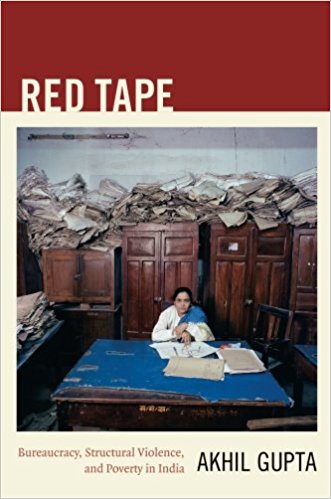Social science research focused on South Asia has for a long time had a critical shortcoming: the state is almost never an object of study in its own right, but rather studied in conjunction with factors—caste and ethnicity, party competition, regionalism, social movements—in the production of social outcomes. In our research traditions, the Indian state is almost always treated as an ‘intervening variable,’ a mechanism that allows for the transmission of more popular factors to translate into outcomes of interest to academics and policy makers. As a result, the state is either treated as a monolithic ‘black-box’ or simmered down to essential archetypes: the distant Union ministry, the pro-market state government, the rent-seeking official, the inclusionary Panchayat.
In Akhil Gupta’s ambitious, wide-ranging and excellent book, the Indian state is both represented and unpacked into component representations, through a rich ethnographic portrayal of state agencies and officials and how they interact with citizens in the work of (largely ineffective) development programmes.

